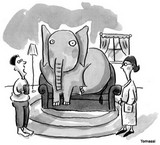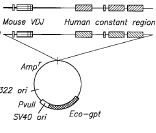By Dennis Crouch
The first round of briefs have now been filed in the much anticipated KSR case that will address fundamental questions of patentability. [Copies of briefs are found below] The doctrine of nonobviousness ensures that patent rights are not granted on inventions that are simply throw-away modifications of prior technology. Questions of obviousness are at play in virtually every patent case, in both proceedings before the USPTO and during infringement litigation.
Obviousness has always been a “squishy” term, but over the past twenty-five years, the Court of Appeals for the Federal Circuit has developed a somewhat objective nonobviousness doctrine using a teaching/suggestion/motivation (TSM) test. According to the test, when various pieces of prior art each contain elements of an invention, the prior art can be combined together to invalidate a patent on the invention only when there is some motivation, suggestion, or teaching to combine the prior art.
KSR has asked the Supreme Court to rethink that approach and take a fresh look at the obviousness standard for patentability. The petition questions whether obviousness should require any proof of some suggestion or motivation to combine prior art references.
Question Presented: Whether the Federal Circuit erred in holding that a claimed invention cannot be held "obvious," and thus unpatentable under 35 U.S.C. sec. 103(a), in the absence of some proven "'teaching, suggestion or motivation' that would have led a person of ordinary skill in the art to combine the relevant prior art teachings in the manner claimed"?
Interestingly, the Supreme Court has not heard an obviousness since well before the founding of the Federal Circuit. In that case (Sakraida 1976), the Court held that a combination which only unites old elements with no change in their respective functions is precluded from patentability under 103(a). Under the Sakraida standard, the Teleflex patent is arguably obvious. In an article several years ago, Professor John Duffy identified this obviousness issue as one that should attract the Supreme Court’s attention.
[The Federal Circuit’s suggestion] test, which tends to make even seemingly trivial developments patentable, is entirely the Federal Circuit’s product. It has no basis in the Supreme Court’s case law and may, in fact, be inconsistent with the Court’s most recent pronouncement on the subject (though that precedent is now more than a quarter century old).
Duffy, The Festo Decision and the Return of the Supreme Court to the Bar of Patents, 2002 S.Ct. Rev. 273, 340-41 (2003). Now, Duffy, a former clerk of Justice Scalia, is part of the KSR team that is trying to change the rule of law.
The case itself concerns a patent covering a gas pedal for an automobile. KSR makes pedals for GM & Chevy trucks and was sued for infringement of the Teleflex patent.
Crouch’s notes: In my view, the question is not correctly presented because it focuses on the aspect of “proof.” Of course any decision on obviousness should be based on some sort of proof. I expect that the Court will, as they often do, ignore this particular question and instead answer the broader question of how “a court should go about deciding whether matter claimed in a patent should be deemed ‘non-obvious' subject matter.” In fact, in its merits brief, KSR implicitly recognizes this more fundamental question in its summary of the case.
It is very likely that the Federal Circuit’s home-grown TSM test will be eliminated. This leaves us with a gaping hole — the most likely successor is a return to Sakraida that would require a showing of some functional-shift caused by a combination of old elements.
Petitioner KSR and a group of amici have recently filed their briefs on the merits. Looking at the Amici thus far, you can see that KSR’s supporters are primarily law professors and large companies likely to get sued for patent infringement. They are hoping to lower the obviousness standard — making it easier to invalidate a patent during litigation. It is not clear, however, that the Sakraida standard is actually a higher patentability bar — that all depends on the meaning of a “functional-shift.” That said, many of the potential defendants will be happy if the law becomes more unsettled — the result at least gives them more reason to appeal and would thus increase the plaintiff’s litigation costs (marginally lowering the number of infringement suits filed). Notably, none of the major bar associations support the petitioner.
What follows is a brief review of those documents. The original documents themselves are accessible through links at the bottom of the article.
Petitioner KSR’s Brief
KSR’s strongest case is that the way the courts determine obviousness today (the TSM test) is not based on any statutory language nor is it based on any Supreme Court jurisprudence. Rather, the CAFC has created the TSM test out of whole cloth and crafted it in a way that inappropriately rejects Supreme Court precedent. The extremely well researched and written brief traces the history of obviousness jurisdiction and uses that history as the primary basis for its conclusions.
One interesting argument is KSR’s position that provides 103(a) a condition for patentability rather than a condition for challenging patentability. This appears to be an argument directed primarily to patent prosecution — that the applicant should be the one making an up-front showing of non-obviousness to satisfy section 103(a) rather than the PTO being forced to open with its rejection.
Finally, KSR makes clear that the TSM test sets the patentability bar too low and allows too many technically trivial inventions to receive patent protection.
The only thing lacking here is any strong guidance for what obviousness test should arise to replace the soon to be displaced TSM test. KSR argues for little more than “adherence to [the Court’s] precedents.” The result will certainly be a number of years of turmoil — especially on the side of patent prosecution.
Bush Administration in Support of Petitioner
The Government argues that the CAFC has “inappropriately broadens the category of nonobvious and therefore patentable inventions” by limiting the obviousness determination to a single rigid test. Rather, the Government would return to the rules of Graham v. John Deere, that try to determine “whether the claimed invention manifests the extraordinary level of innovation, beyond the capabilities of a person having ordinary skill in the art, that warrants the award of a patent.”
In particular, the brief points out that the TSM test is not wrong. Rather, the problem is that the TSM test should not be the only test available to determine whether an invention is obvious. For instance, the Government argues that PTO Examiners should be able to reject claims based on their “basic knowledge” or “common sense.”
Law and History Professors (Sarnoff) in Support of Petitioner
Professor Sarnoff along with six other professors add to the debate by recognizing that the Supreme Court’s precedent, although “sound,” needs to be clarified: The professors
suggest [as a clarification to Graham] that the Court hold that the obviousness inquiry is designed to prohibit patents on inventions that could have been made by those skilled in the art within a reasonable period of time (following the time that the invention at issue was actually made) and within reasonable budgetary constraints.
The professors also suggest several modifications (clarifications) of the burdens of proof of patentability. Their first suggestion would be to remove the evidentiary burden on the PTO (or challenger in litigation) to satisfy the TSM test. Thus, even if the TSM test remains in effect, the initial burden would presumably be shifted to the patentee to prove that the test is not satisfied.
Another clarification would relate to the presumption of validity.
[T]he Court should clarify that a clear and convincing burden of proof should not apply to issues for which the relevant evidence was not previously considered by the Patent Office.
Progress and Freedom Foundation in Support of Petitioner
PFF is a think tank that supports free markets and usually strong property rights. (Richard Epstein and John Duffy are both members of PFF advisory counsel). A strong property regime in the patent system means that issued patents should be valid and should clearly show their scope of coverage. PFF’s contribution is to explore how improper hindsight can be avoided even without strict evidentiary requirements:
But adopting the correct standard does not require that USPTO or the courts give in to subjective whim, because there are administrative mechanisms that can be used to make the exercise of subjective judgment fair and reasonably consistent over time.
For example, USPTO could adopt the current Federal Circuit test as a first cut, because it does indeed represent a crucial benchmark. Any invention which fails the “teaching-suggestion-motivation” test is clearly not patentable. But this need not end the inquiry. If the examiner thinks he/she has a special case in which this test does not capture the reality of the situation, perhaps the matter could be referred to a multiperson review committee, thus eliminating the influence of a single examiner’s whim. Or perhaps boards of outside experts could be established, or community peer review processes conducted over the Internet.
Documents:
-
On the Merits
-
Petitions Stage
- Party Briefs
-
Amicus Briefs
Links:
Cite as Dennis Crouch, “KSR v. Teleflex: Rethinking Obviousness,” Patently-O, available at https://patentlyo.com/patent/2006/08/ksr_v_teleflex_.html

 KSR v. Teleflex (Supreme Court 2006).
KSR v. Teleflex (Supreme Court 2006). 
 KSR v. Teleflex (Supreme Court 2006).
KSR v. Teleflex (Supreme Court 2006).  Justice Kennedy’s concurring opinion in eBay included a number of striking comments including the following:
Justice Kennedy’s concurring opinion in eBay included a number of striking comments including the following:  KSR International v. Teleflex (On Petition for Certiorari)
KSR International v. Teleflex (On Petition for Certiorari) SmithKline Beecham v. Apotex (on petition for writ of certiorari)
SmithKline Beecham v. Apotex (on petition for writ of certiorari) of a patent. The drug in question is Paxil, and the case history has more twists than a Hazzard County road. But, the question now before the Court is simple:
of a patent. The drug in question is Paxil, and the case history has more twists than a Hazzard County road. But, the question now before the Court is simple:  MedImmune v. Genentech (Supreme Court 2006).
MedImmune v. Genentech (Supreme Court 2006).